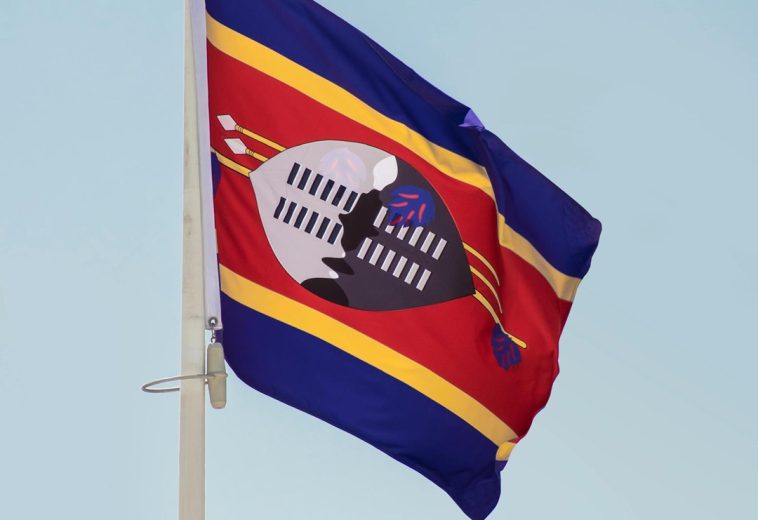Africa, the cradle of humanity, is no longer just where history began; it is where history is being remade. Across the globe, African culture is extending its vibrant reach, weaving rhythms, styles, and stories into the fabric of global pop culture.
From Lagos to Paris, Dakar to New York, Africa’s creative industries are building bridges, captivating imaginations, and promoting a renewed, positive narrative for the continent. The beat of an African drum, the stitch of Ankara cloth, or the prose of a Chimamanda Ngozi Adichie novel resonate as symbols of soft power—a quiet yet potent revolution of influence, creativity, and pride reshaping the world.
READ ALSO: African Sports as a Tool for Global Diplomacy
The Power of Sound
Music is Africa’s heartbeat, and its rhythm reverberates across continents. Afrobeats, a genre originating in Nigeria, has transcended boundaries to become a global phenomenon. Artists like Burna Boy, Wizkid, and Tiwa Savage have brought African sounds to international charts and transformed global perceptions of African music.
Burna Boy’s album Twice As Tall won a Grammy in 2021, marking a pivotal milestone for African music on the global stage. His message was clear: Africa is not just a participant but a leader in global entertainment. In 2023, African music revenues surged by over 34%, according to the International Federation of the Phonographic Industry (IFPI).
Beyond music charts, collaborations with Western icons such as Beyoncé, Drake, and Ed Sheeran have amplified African music’s reach. Beyoncé’s The Lion King: The Gift showcased a mosaic of African talent, blending traditional sounds with modern beats. Afrobeat festivals like Afro Nation draw tens of thousands of attendees worldwide, turning venues such as Portugal’s beaches into cultural crossroads.
African music’s success is emblematic of the continent’s broader narrative: deeply rooted in tradition yet ambitious in its global aspirations. Its influence extends beyond entertainment, inspiring identity, pride, and unity.
Fashion as a Canvas
If music is Africa’s heartbeat, fashion is its visual poetry—a canvas for identity, storytelling, and innovation. The bold patterns of kente cloth, the intricate artistry of adire, and the flamboyance of Ankara have elevated African design to global prominence. African designers are no longer whispering their brilliance; they are declaring it boldly through haute couture and streetwear alike.
Designers such as Nigeria’s Lisa Folawiyo, South Africa’s Thebe Magugu, and Morocco’s Amine Bendriouich are redefining fashion on the global stage. Thebe Magugu’s 2019 LVMH Prize win was not just a personal triumph but a watershed moment for African fashion, underscoring its sophistication and relevance.
African prints have become ubiquitous in contemporary Western wardrobes, while African designers command spaces at Paris Fashion Week and on Hollywood red carpets. In 2022, African fashion generated $15.5 billion in revenue, with the African Development Bank forecasting exponential growth.
Global brands now pay homage to Africa’s influence. Louis Vuitton has incorporated Maasai-inspired patterns, while Dior has drawn inspiration from African motifs, acknowledging the continent’s creative ingenuity.
For Africa, fashion represents a reclamation of identity and a celebration of diversity. It is more than fabric; it is history and future interwoven into a single garment.
The Power of Story
In a world accustomed to speaking about Africa, African authors and filmmakers are ensuring the continent tells its own story. Writers like Chimamanda Ngozi Adichie, Ngũgĩ wa Thiong’o, and Maaza Mengiste have positioned Africa as a protagonist in the global literary canon.
Adichie’s Half of a Yellow Sun has been translated into over 30 languages, becoming a global bestseller and a staple in university syllabuses. Her TED Talk, The Danger of a Single Story, has garnered over 30 million views, challenging reductive stereotypes about Africa.
African cinema is also gaining international recognition. Nollywood, Nigeria’s film industry, ranks as the second-largest film producer globally, churning out thousands of films annually. Platforms like Netflix have amplified African narratives with hits such as Blood & Water, King of Boys, and Lionheart.
These stories hold immense cultural weight. They demonstrate that Africa does not need to borrow voices; it has always had its own. Through literature and cinema, the continent reclaims its narrative, dismantles stereotypes, and showcases its humanity to the world.
Art and Creativity
From the ancient rock art of the Sahara to contemporary galleries in Cape Town, Africa’s art embodies imagination, identity, and history. Artists like Ghana’s El Anatsui, South Africa’s William Kentridge, and Nigeria’s Njideka Akunyili Crosby are reshaping the global art scene.
In 2022, El Anatsui’s works fetched millions at Sotheby’s and Christie’s auctions, underscoring the demand for African art. Art fairs such as the Investec Cape Town Art Fair and Art X Lagos have become global showcases, attracting artists, curators, and collectors from across the globe.
Creative expression in African art extends beyond galleries to urban landscapes. Cities like Johannesburg and Dakar are living museums, with street art narrating stories of culture, politics, and aspirations. This visual renaissance reaffirms Africa’s place not only in art history but also in its future.
Africa’s Soft Power: A Global Transformation
Africa’s cultural diplomacy is not about fleeting trends but enduring influence. African music pulses through global airwaves; its fashion graces elite runways; its stories fill bookshelves; its art decorates walls. These achievements are not mere successes—they are bold statements of arrival, proving that Africa is not a continent to be pitied or sidelined but celebrated and respected.
Soft power, as Joseph Nye defined, is the ability to influence through culture, values, and ideas. With boundless creativity and innovation, Africa is leveraging this power to reshape its global image. This quiet revolution serves as a powerful antidote to decades of misrepresentation. The African Renaissance is not on the horizon; it is already here.
As the beat of an African drum reverberates in New York, as the colours of kente inspire runways in Milan, and as African stories captivate children in classrooms worldwide, one truth emerges: Africa’s cultural diplomacy is crafting a new global narrative—one of beauty, pride, and boundless potential.




